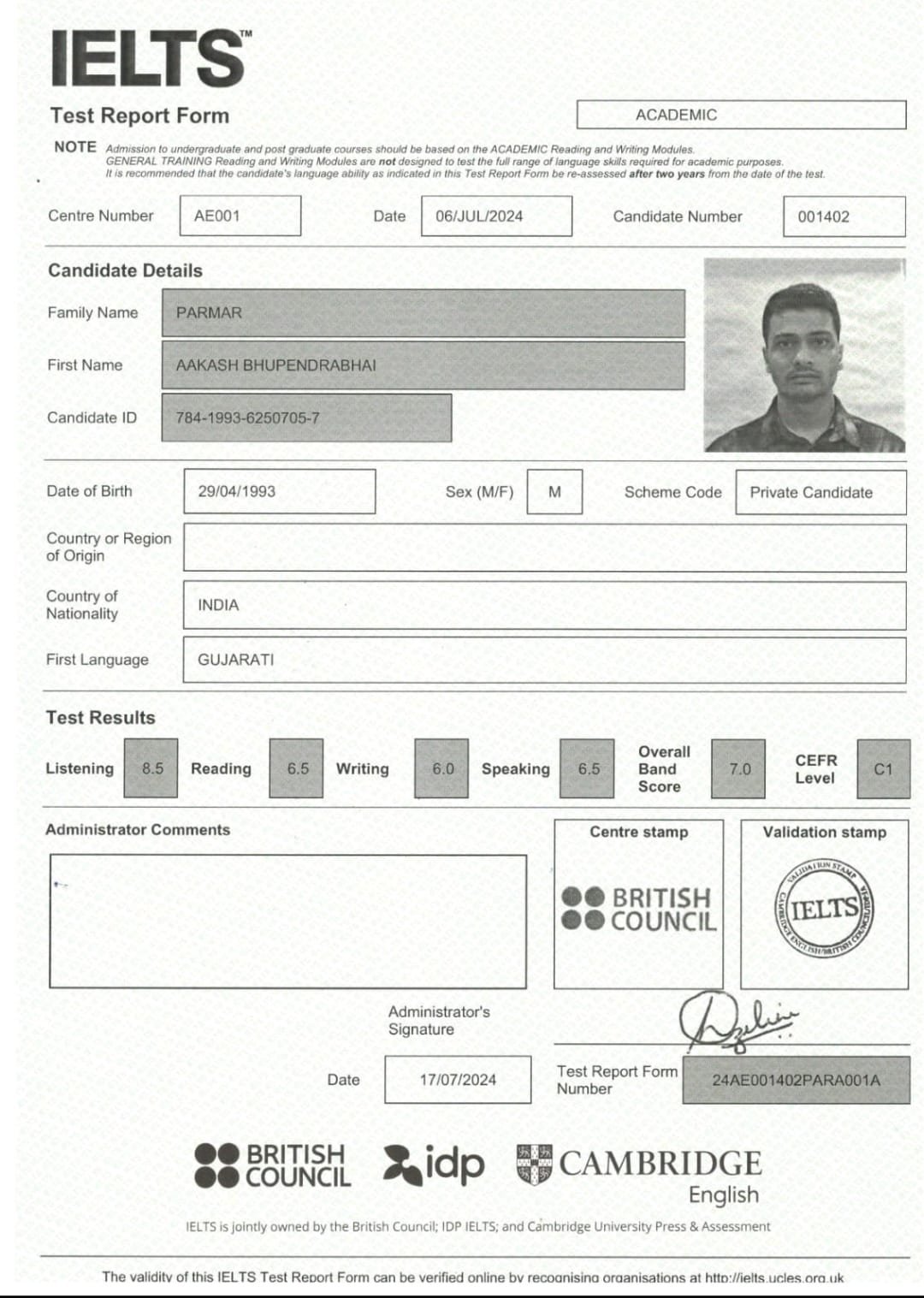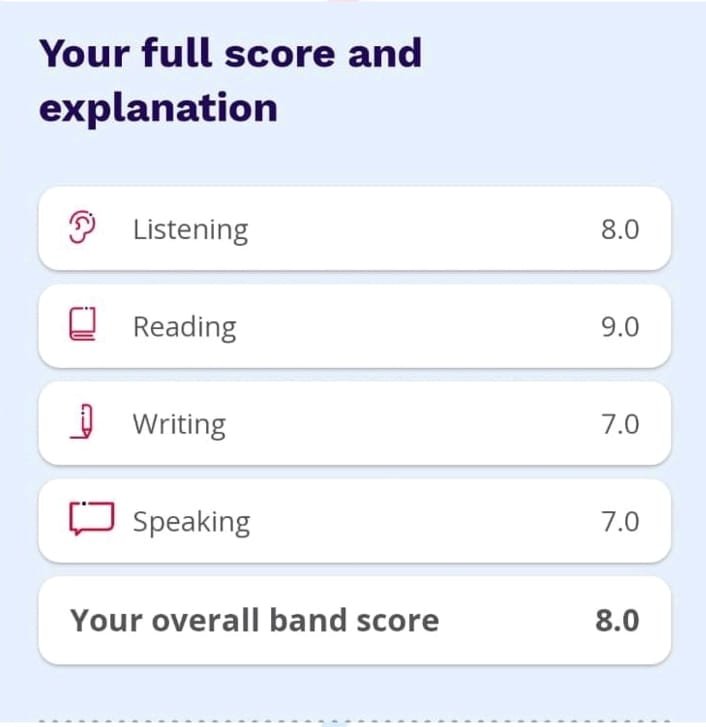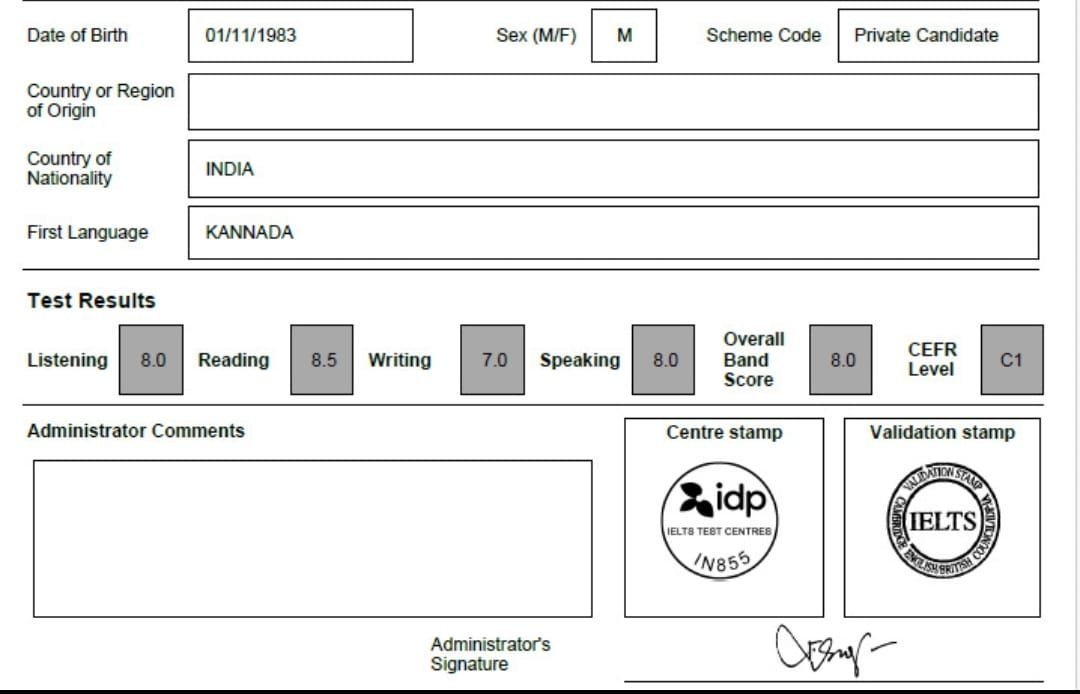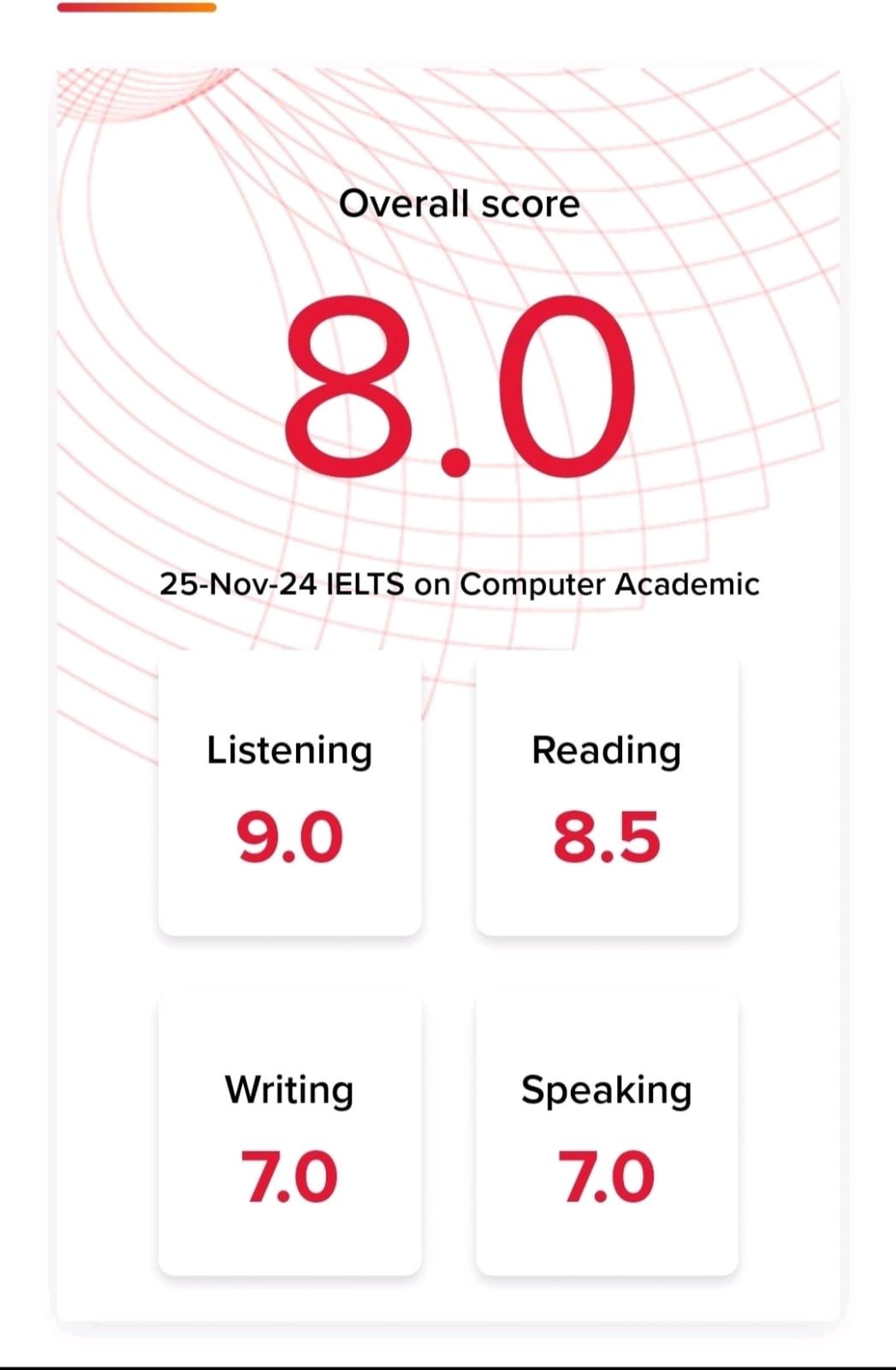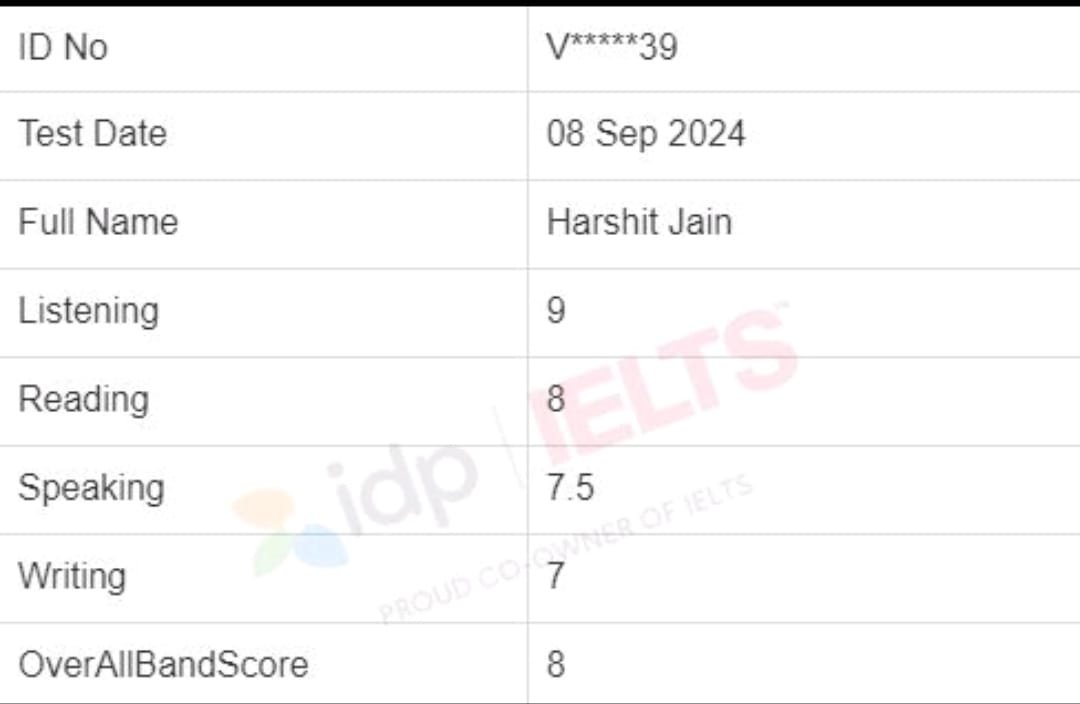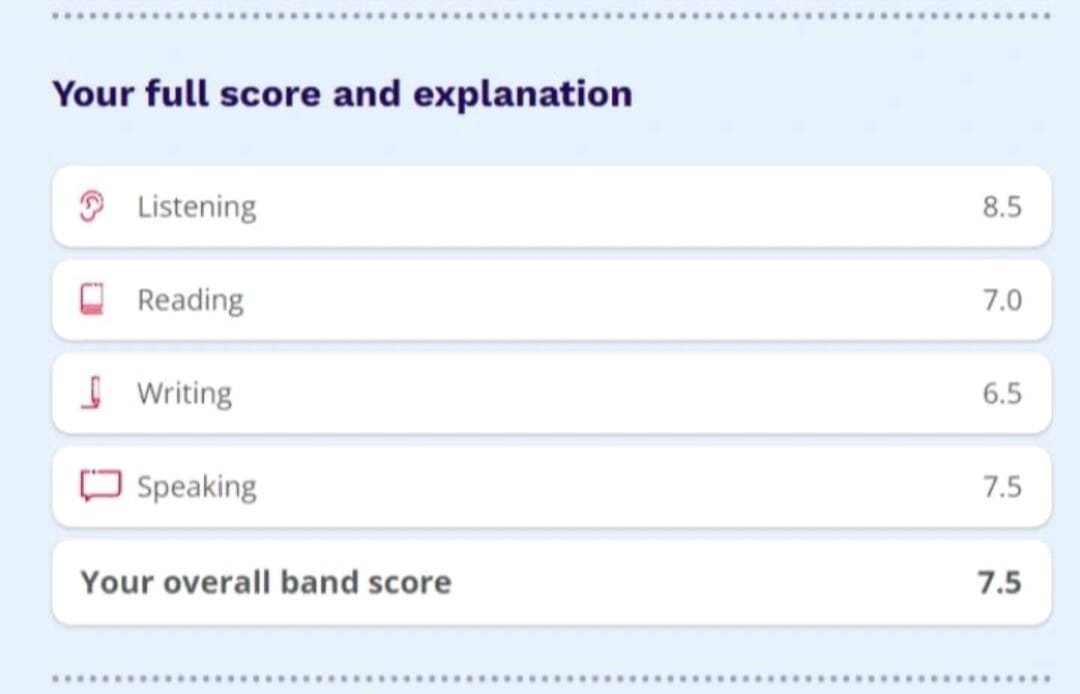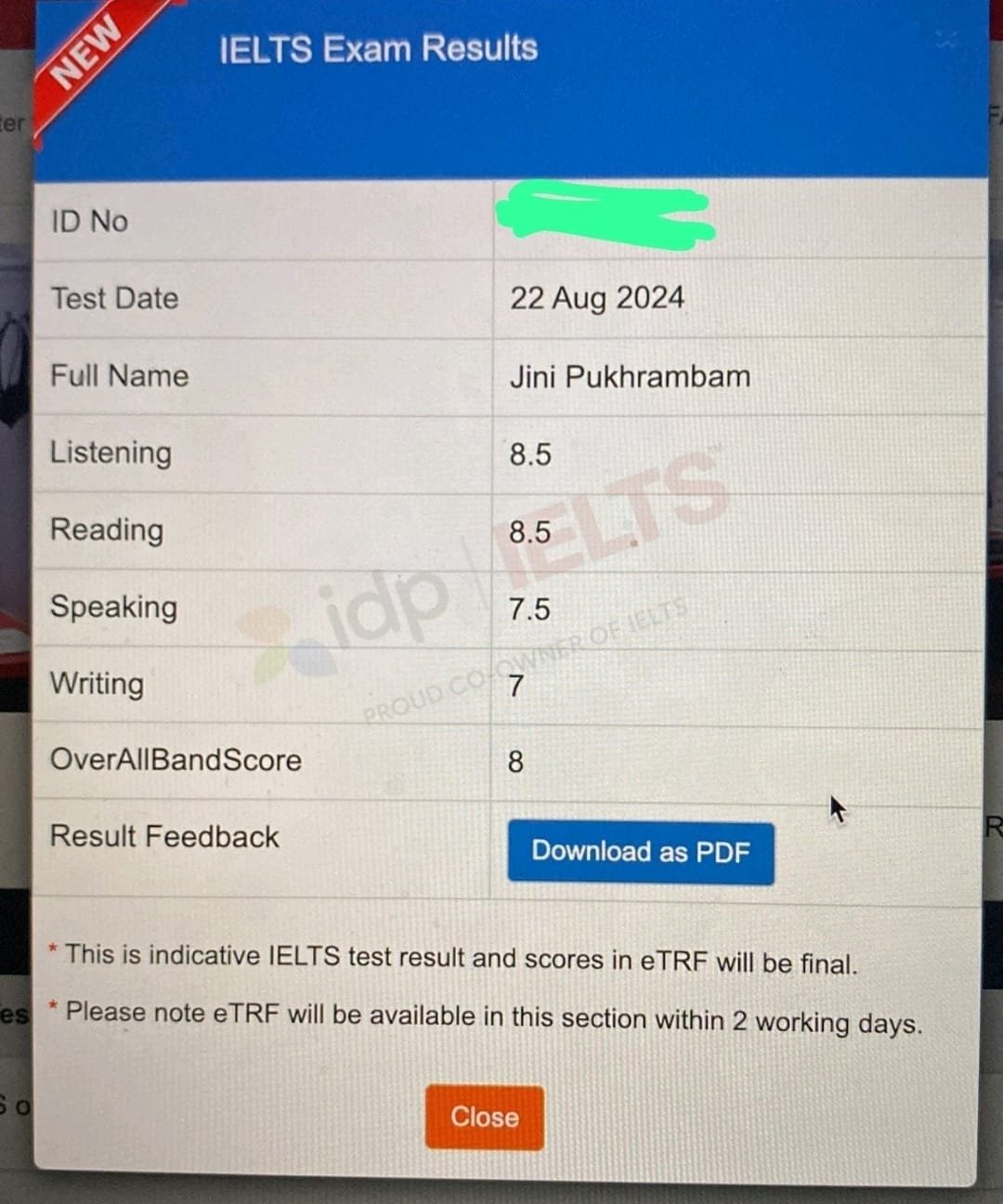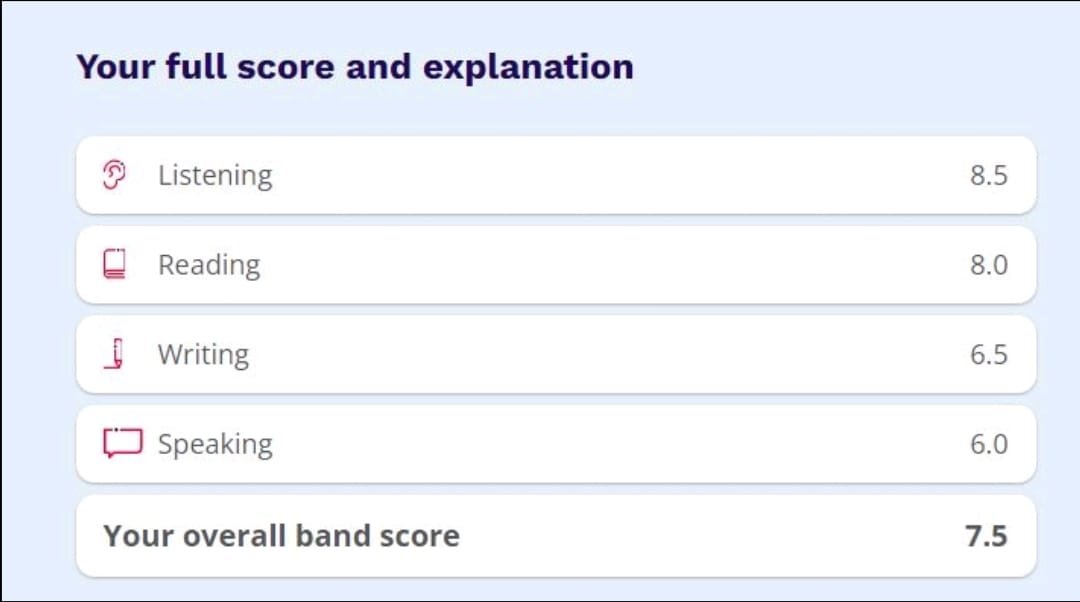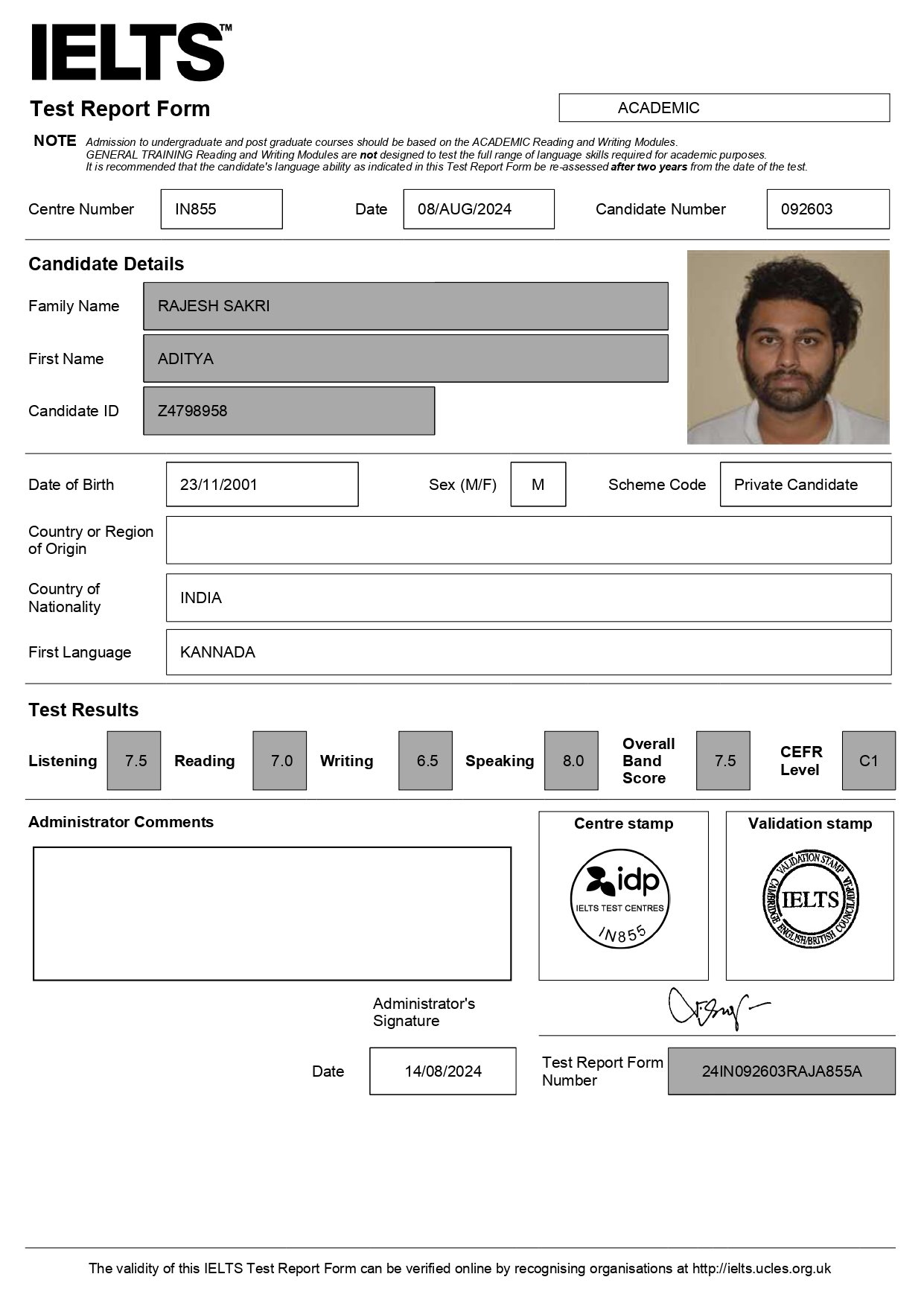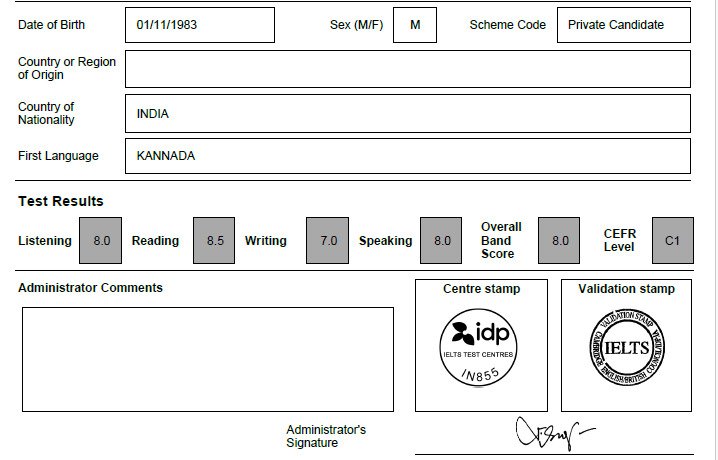
The International English Language Testing System (IELTS) is one of the popular tests of English proficiency recognized internationally that is intended for students, professionals, and migrants seeking to study, work, or settle in English-speaking countries. There are four sections to the test: Listening, Reading, Writing, and Speaking. In this guide, we will explore the IELTS Exam Syllabus 2025, covering each section in detail.
1. IELTS Exam Syllabus – Listening
The Listening section evaluates your ability to understand spoken English in various contexts. It consists of four recorded audio passages, including conversations and monologues. This section lasts 30 minutes, with an additional 10 minutes to transfer answers to the answer sheet.
IELTS Exam Syllabus Listening Format:
- Part 1: A conversation between two people in an everyday social context.
- Part 2: A monologue set in an everyday social context (e.g., a speech about local facilities).
- Part 3: A conversation among up to four people in an educational or training setting.
- Part 4: A monologue on an academic subject (e.g., a university lecture).
Question Types:
- Multiple choice
- Matching
- Plan, map, diagram labeling
- Form, note, table, flow-chart, summary completion
- Sentence completion
FAQs for IELTS Exam Syllabus Listening:
- How many times can I listen to the audio recordings?
- You will hear each recording only once.
- Are the accents in the test difficult to understand?
- The recordings include a variety of English accents, such as British, American, Australian, and Canadian.
- Can I take notes while listening?
- Yes, you can take notes and use them to answer questions.
Pro Tips for IELTS Exam Syllabus Listening:
- Familiarize yourself with different English accents.
- Practice listening to podcasts, news, and lectures.
- Pay close attention to keywords and synonyms.
- Use the 10-minute transfer time wisely to check spelling and grammar.
For more IELTS resources, visit Your Local IELTS Coach.
2. IELTS Exam Syllabus – Reading
The Reading section assesses your ability to read and understand different types of texts. The format differs between the Academic and General Training versions of IELTS. The duration of this section is 60 minutes.
Academic Reading Format:
- 3 long passages taken from books, journals, magazines, and newspapers.
- Texts may contain graphs, diagrams, and illustrations.
General Training Reading Format:
- 3 sections with extracts from advertisements, guides, notices, and work-related texts.
Question Types:
- Multiple choice
- Identifying information (True/False/Not Given)
- Identifying the writer’s views (Yes/No/Not Given)
- Matching headings, features, or sentence endings
- Summary, note, table, or flow-chart completion
- Diagram label completion
- Short-answer questions
FAQs for IELTS Exam Syllabus Reading:
- Can I write on the question paper?
- Yes, but you must transfer your answers to the answer sheet within the allotted time.
- Is spelling important in the Reading test?
- Yes, incorrect spelling will be marked wrong.
- Can I use a highlighter?
- No, highlighters are not allowed.
Pro Tips for IELTS Exam Syllabus Reading:
- Skim and scan for key information before reading in detail.
- Practice reading academic and general texts to improve comprehension.
- Underline keywords to locate answers quickly.
- Be mindful of time management; don’t spend too long on one question.
3. IELTS Exam Syllabus Writing
The Writing section tests your ability to express ideas clearly and coherently. The test duration is 60 minutes and consists of two tasks.
Academic Writing Format:
- Task 1: Describe visual information (graphs, charts, tables, maps, diagrams) in at least 150 words.
- Task 2: Write an essay on a given topic in at least 250 words.
General Training Writing Format:
- Task 1: Write a letter (formal, semi-formal, or informal) in at least 150 words.
- Task 2: Write an essay in at least 250 words.
Assessment Criteria:
- Task achievement/response
- Coherence and cohesion
- Lexical resource (vocabulary)
- Grammatical range and accuracy
Also, read this Essay Samples – https://yourlocalieltscoach.com/essay-samples/
FAQs for IELTS Exam Syllabus Writing:
- Can I use bullet points in my answers?
- No, answers should be in full sentences and paragraphs.
- Is handwriting important in the Writing test?
- Yes, it should be legible; otherwise, you may lose marks.
- Can I write more than the word limit?
- Yes, but focus on quality rather than quantity.
Pro Tips for IELTS Writing:
- Plan your response before writing to ensure clarity and structure.
- Use a wide range of vocabulary and sentence structures.
- Stay within the word limit and avoid unnecessary information.
- Proofread your writing for spelling and grammar errors.
4. IELTS Exam Syllabus – Speaking
The Speaking section evaluates your ability to communicate fluently in English. It is a face-to-face interview with an examiner and lasts 11-14 minutes.
Speaking Test Format:
- Part 1 (Introduction & Interview – 4-5 minutes):
- General questions about yourself, home, family, studies, and interests.
- Part 2 (Cue Card – 3-4 minutes):
- You will be given a topic and 1 minute to prepare before speaking for up to 2 minutes.
- Part 3 (Discussion – 4-5 minutes):
- A discussion on broader issues related to the topic in Part 2.
Assessment Criteria:
- Fluency and coherence
- Lexical resource
- Grammatical range and accuracy
- Pronunciation
FAQs for IELTS Exam Syllabus Speaking:
- Can I ask the examiner to repeat a question?
- Yes, you can ask them to repeat, but they won’t explain the meaning.
- Will I lose marks if I pause to think?
- No, but long pauses may affect your fluency score.
- Can I use informal language?
- It depends on the question; formal responses are preferred.
Helpful resource – https://yourlocalieltscoach.com/common-questions-asked-in-ielts-speaking-topics-with-answers/
Pro Tips for IELTS Exam Syllabus Speaking:
- Speak clearly and confidently without memorizing answers.
- Practice speaking English daily to improve fluency.
- Extend your answers instead of giving short responses.
- Use a range of vocabulary and correct pronunciation.
Conclusion
The IELTS exam Syllabus 2025 is designed to measure a candidate’s proficiency in the English language comprehensively. So, whether you are taking the Academic test or General Training, preparation is the key to obtaining a high band score. Use the best IELTS eBooks, IELTS online preparation courses, and practice tests.
For expert guidance, consider enrolling in IELTS Online Coaching programs to receive structured training and personalized feedback. Start preparing today and aim for your desired band score!
